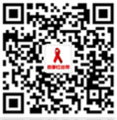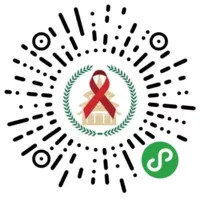
2014年3月5日讯 /生物谷BIOON/ --最近来自美国National Institute of Allergy and Infectious Diseases(NIAID)的研究人员发现了一种新抗体可能能为未来艾滋病疫苗的研发提供新的思路。研究人员分析了目前处于研究阶段的艾滋病疫苗研究数据发现,如果人产生的抗体能够特异性结合在艾滋病病毒包被蛋白V1V2区域时,疫苗的免疫效果较好。据此研究人员进行了深入分析,并分离确定了一种名为CAP256-VRC26的抗体。这种抗体一般在人感染艾滋病病毒数月后产生。进一步研究发现,CAP256-VRC26能够中和许多艾滋病病毒变种,这也为今后据此开发艾滋病疫苗奠定了基础。事实上,此前就有研究表明艾滋病病毒V1V2区域是艾滋病病毒中的一个保守区域,不同的艾滋病病毒变种的V1V2区域都基本相同。(生物谷Bioon.com)
详细英文报道:
A new discovery that explains how the body's immune system makes a potent antibody that blocks HIV infection may be an important step toward developing a vaccine against the virus.
Scientists from the National Institute of Allergy and Infectious Diseases analyzed data from the results of a clinical trial of the only experimental HIV vaccine to date that's shown modest success in people. Trial results showed that antibodies that bind to the V1V2 region of HIV's Envelope protein correlated with lower infection rates among those who were vaccinated.
Many researchers believe that an effective vaccine against HIV would work by eliciting powerful antibodies to a specific conserved site on the virus called V1V2, one of a handful of sites that remains constant on the fast-mutating virus.
Along with investigators from Columbia University, the Centre for the AIDS Programme of Research in South Africa and the National Institute for Communicable Diseases in Johannesburg, the NIAID researchers identified an HIV-infected subject who naturally developed V1V2-directed HIV neutralizing antibodies, named CAP256-VRC26, after several months of infection.
Analyses of blood samples donated by the volunteer between 15 weeks and four years after becoming infected allowed scientists to determine the genetic make-up of the original form of the antibody and define the various structures the antibody takes as it mutates toward its full potency.
The study found that after relatively few mutations, even the early intermediate versions of the CAP256-VRC26 antibodies can effectively neutralize many known HIV strains.
The investigators believe that the findings validate the basis for a V1V2-directed HIV vaccine and have begun work on a set of vaccine components designed to produce V1V2 neutralizing antibodies and guide their maturation.
 首都红丝带
首都红丝带
 e检知
e检知
 首都红丝带
首都红丝带
 e检知
e检知